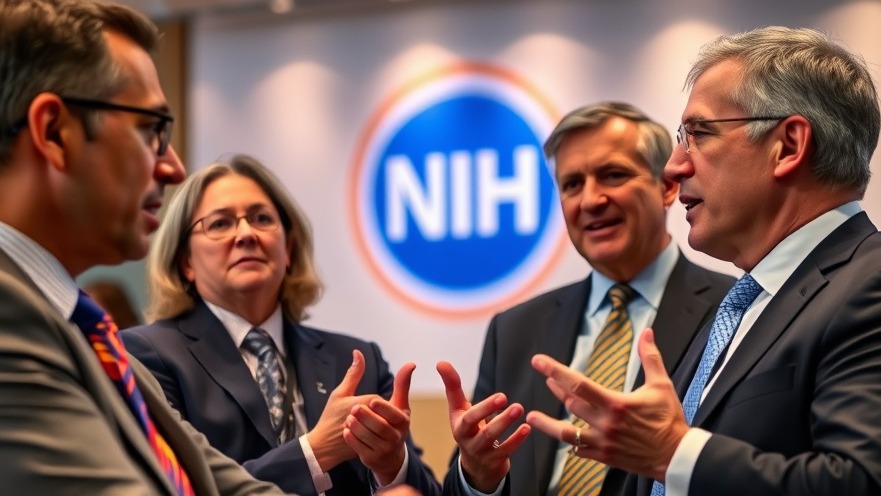
Revitalizing Trust: Bhattacharya's Vision for the NIH
On March 5, 2025, Jayanta “Jay” Bhattacharya, a distinguished professor of health policy at Stanford University, presented his plan to restore credibility within the National Institutes of Health (NIH) during a Senate Health, Education, Labor & Pensions (HELP) Committee hearing. Amid ongoing concerns about public confidence in scientific institutions following the COVID-19 pandemic, Bhattacharya’s approach emphasizes transparency, scientific integrity, and a renewed focus on pressing health issues, particularly chronic diseases.
The Crisis of Confidence: A Deeper Look
During his testimony, Bhattacharya referenced a November 2024 Pew Research study indicating that only 26% of Americans held a high level of confidence in scientists to act in the public's best interest. This alarming statistic underscores a pivotal moment for the NIH—once regarded as a beacon of medical innovation—at risk of losing the trust of the very public it aims to serve. He highlighted that restoring public faith is crucial, not merely for NIH's operational integrity but for the overall future of American health policies.
Strategic Goals for Sustainable Impact
Bhattacharya outlined five key goals aimed at rejuvenating the NIH's mission:
Tackle Chronic Diseases: With American life expectancy stagnant since the pandemic, addressing chronic illnesses—ranging from diabetes to heart disease—is paramount. This alignment with evolving healthcare needs will not only enhance patient outcomes but also engage the community in preventive measures.
Ensure Data Integrity: Following last year's integrity scandal regarding Alzheimer’s research, Bhattacharya stressed the necessity for reliable and replicable science. He argued that poor data quality could directly affect research progress, exacerbating America's chronic disease crisis.
Embrace Scientific Dissent: Bhattacharya stated, “Dissent is the essence of science.” A culture that fosters open debate and encourages alternative perspectives will likely fuel innovation, enabling researchers to explore fresh avenues in medical research.
Advance Cutting-Edge Research: By prioritizing innovative solutions, NIH can establish itself at the forefront of new treatments and medical advancements. This includes not just funding established scientists but also nurturing young researchers with fresh ideas.
Regulate Risky Research: Foreseeing the implications of potentially harmful studies, the NIH will implement stricter scrutiny of research proposals, ensuring ethical guidelines are met to safeguard public health.
Addressing Potential Challenges: Funding and Public Trust
Senators showed palpable concern regarding funding issues, particularly how NIH’s resources have historically favored established scientists over trailblazers with novel insights. Bhattacharya’s pledge to balance funding between risk and reward is critical for the longevity of biomedical research. Ensuring that supplies flow towards transformative ideas will help foster innovation while restoring public faith.
Why This Matters for Concierge Medical Practices
For owners of concierge medical practices, understanding Bhattacharya's agenda is not just about institutional credibility—it’s about aligning with a healthcare landscape that increasingly demands reliability and ethical research practices. By ensuring that NIH priorities reflect a commitment to chronic disease management and transparency, concierge practices can better tailor their offerings to meet patient expectations and health outcomes.
Charting a New Course
As the NIH seeks to reclaim its status as a leader in biomedical research, the implications extend beyond governmental corridors; they directly influence community health. Bhattacharya's vision does not merely aim to restore credibility; it asserts a comprehensive plan that has the potential to reshape the future of American healthcare. For those in concierge medicine, monitoring these developments is essential for growth and sustainability in a rapidly changing industry.
Call to Action: As the healthcare landscape evolves, stay informed on key initiatives at the NIH. Understanding the research environment can enhance your practice’s strategic decision-making. Engage with your professional network to discuss how evolving policies could shape concierge medicine moving forward.
 Add Row
Add Row  Add
Add 




Write A Comment